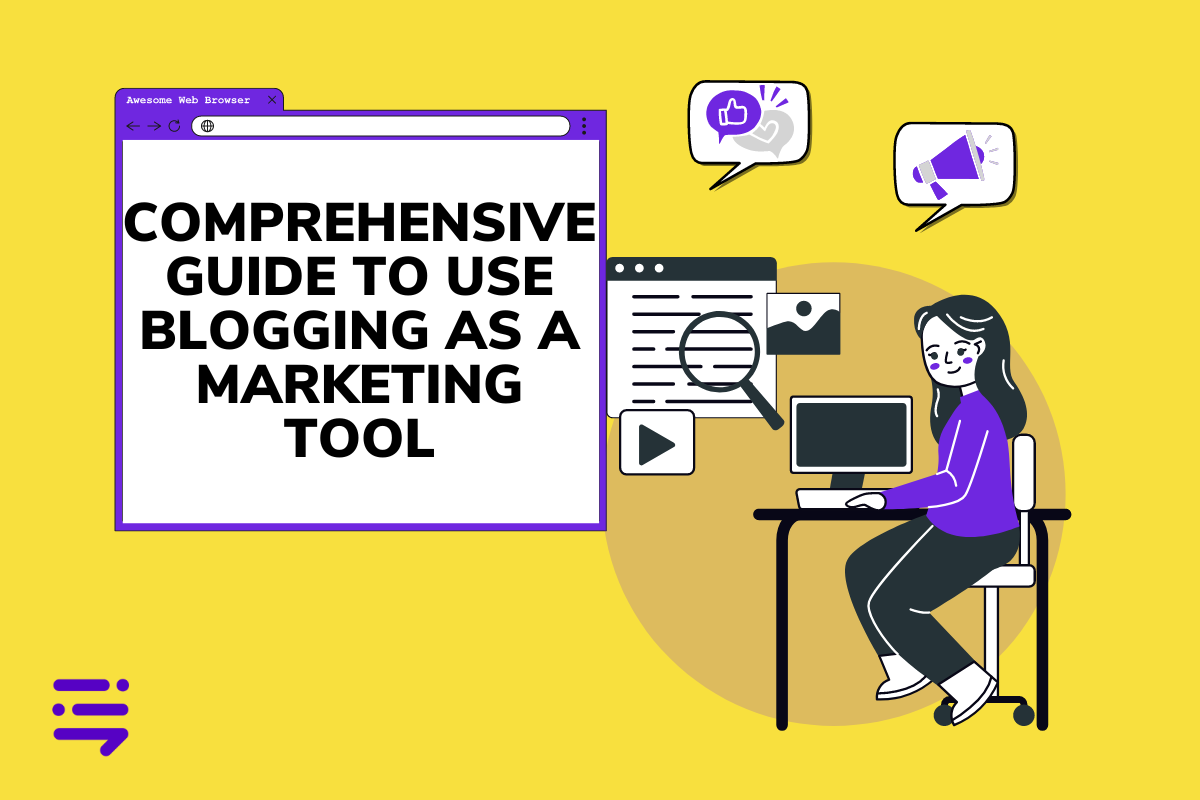Blogging as a marketing tool can be a powerful component of your digital marketing strategy. Companies with blogs attract 67% more leads monthly than companies that don’t blog. And they get up to 97% more links to their website!
If you’re not blogging to promote your brand, you could be missing a lot.
Well-written, engaging business blogs that provide valuable information can draw lots of visitors to your website. Through your blog content, your readers are able to know more about your business and the products that you offer. With blogging, you are able to create a valuable medium that converts visitors into leads — and eventually into paying customers.
In this guide, you will learn:
- The power of blog marketing.
- Its advantages for businesses.
- How to create a detailed plan for using blogging as a marketing tool for your business.
We’ll also explain how you can build your brand and generate revenue from a business blog.
Table of Contents
What is Blog Marketing?
Blog marketing is a strategy of writing blog content to reach intended audiences, promote goods or services, create relationships with customers, and boost brand recognition.
Blogging has become an essential tool for businesses in recent years as it helps them create engaging content that can be shared across multiple channels. Through blog posts, companies can share their stories, experiences, industry insights, and advice which help establish credibility and trust among potential customers.
Blogging also provides SEO benefits by increasing organic traffic to the website through relevant keywords and phrases. By optimizing blog posts for search engines, businesses are able to drive blog readers to their sites and convert them into paying customers later on.
Additionally, blogging helps build relationships with influencers in the industry who may provide additional promotion opportunities for the business’s products or services.
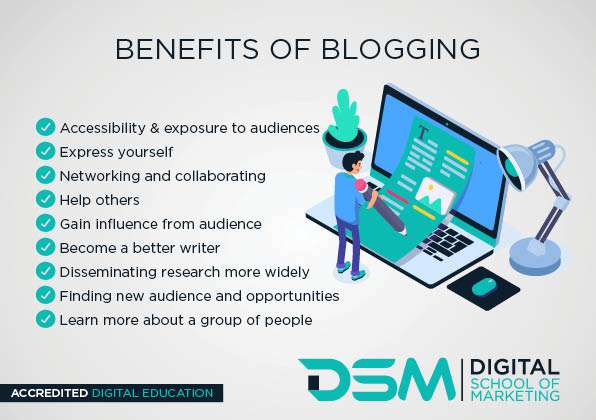
Benefits of Blogging as a Marketing Tool
Businesses of all sizes can write blog articles to enhance their online visibility, boost SEO rankings, cultivate relationships with customers, create leads, and more.
Increase Online Visibility
Blogging can be an effective way to gain visibility and recognition from those who may not have heard of your brand or products. By providing helpful content on topics related to your niche, you can reach a wider audience compared to traditional advertising methods like print media or television commercials.
Blogging can also be a great way to network with other individuals in your industry, leading to heightened visibility for all involved.
Improved SEO Rankings
Search engine optimization (SEO) is an important factor when it comes to getting found online.
By creating keyword-rich blog articles that are optimized for search engines such as Google and Bing, you’ll be able to rank higher in organic search results which will result in more traffic and leads coming from those sources.
Another benefit is that regular blogging makes your website fresh — which is what search engines like.
Build Relationships With Customers
Blogging makes you relatable. It allows you to engage directly with current and potential customers through comments on each post. This interaction helps foster trust between you and your blog readers while allowing them to learn more about what makes your business unique – something that traditional advertising cannot do.
Create Leads
By providing helpful, keyword-rich content related to your audience’s needs or interests, and offering regular updates on new products/services or discounts/promotions through email signup forms, your blog can boost your lead generation strategy. Crafting blog posts that provide value is key for businesses looking to increase conversion and retention rates.
So how do you gain all these benefits from blogging as a marketing tool?
Blogging is popular because it works as a marketing tool and makes money. 🧐Check Out: @ToolsTips #blogging #blogger #contentmarketing #seo #seotools #linkbuilding #backlink #bloggerswanted #Blogs #Articlewritter #blogpost #Marketing #MarketingTips #DigitalMarketing #SMM pic.twitter.com/syhsjQ2h4B
— Jasmine Jordan (@Jasmineseousa) January 19, 2020
Guide to Use Blogging as a Marketing Tool
Blogging as a promotional tool can be an effective way to connect with your desired demographic and boost sales. Here’s a step-by-step guide on how to use blogging as a marketing tool for your business.
Step 1: Choose Your Topic Carefully
When selecting topics for your blog posts, it’s important to consider what would be of interest to your target audience. Think about topics that help solve your readers’ problems, educate them about your product or industry, or even entertain them.
To stay ahead in your niche, effective keyword research is crucial. Head over to Google and look for terms with high monthly search volumes. these keywords reveal what topics are trending and frequently searched. Make sure your blog post addresses these popular queries to match what people are searching for and boost your chances of ranking higher in search results.
Step 2: Write Quality Content
Quality content is helpful and engaging. Create content that will keep readers glued to the page instead of scrolling away. Your post should be useful and something they won’t find elsewhere.
To draw readers to your blog post, write catchy headlines without resorting to clickbait. No matter what tone of voice you are using, avoid jargon or overly technical language so that your reader can digest information easily.
Break up heavy blocks of text with multimedia elements such as images, infographics, tweets, and videos.
Lastly, end with a strong call to action. Whether you’re writing personal blogs or corporate blogs, don’t leave your readers hanging. Tell them what to do next at the conclusion of your article.
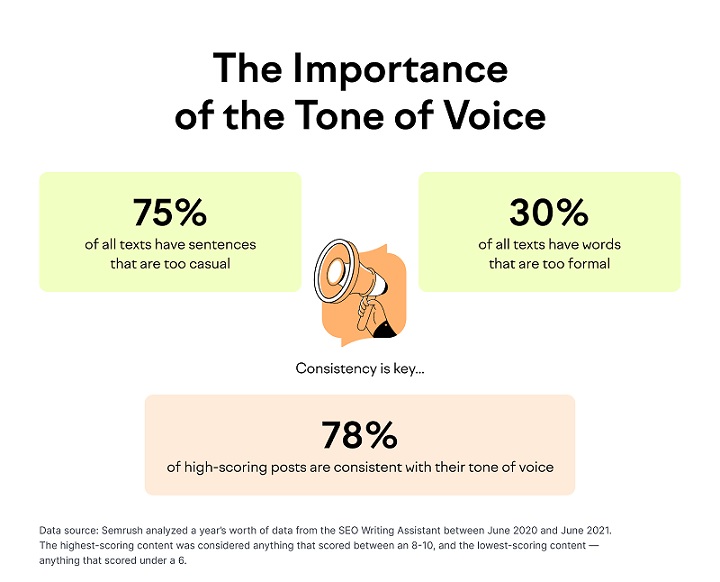
Step 3: Optimize Your Post
The goal of SEO is to maximize the visibility of your blog post in search engine results. These tactics include keyword research, link building, and optimizing headings, titles, and meta descriptions – all of which help rank your page higher in search results pages (SERPs).
Adding internal links to each post that direct readers back to other pieces of content on your site also helps build page authority.
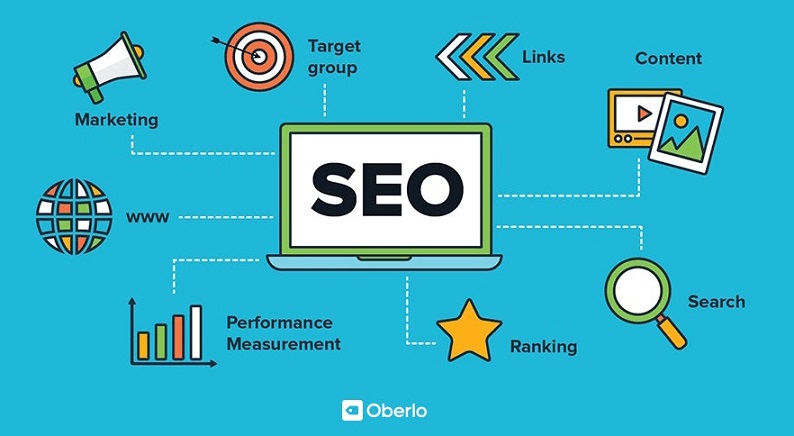
Step 4: Promote, Promote, Promote!
Writing blog posts doesn’t end with hitting the Publish button. You have to go out there and promote your latest piece through different marketing tools.
There are many ways to promote your blog. Sharing your blog on social media, answering questions on Quora, flipping posts on Flipboard, repurposing content, and reaching out to influencers are effective ways of making people discover your blog post.
You can also look for guest posting opportunities where you can share your expertise with new audiences while also promoting your own blog.

Step 5: Track Your Blog Performance
A blog writer should also know how to read and analyze metrics.
Tracking the performance of your blog through page views, click-through rates, and other metrics allows you to identify areas that need improvement. This could mean tweaking certain elements of existing posts or crafting entirely new posts to hit those marks.

Blogging can be a powerful marketing tool for reaching more customers, increasing brand recognition, and potentially boosting sales. By writing blog posts as part of your content marketing, you will be able to maximize your blog for your company’s success.
How Can I Use Blogging as a Business?
Writing blog posts about matters pertinent to your field is one way to leverage blog writing for commercial purposes. By providing useful and factual content related to your niche, you can position yourself as an expert and gain potential customers.
Another way you can start blogging as a business is through guest posting on other blogs or websites in your industry. This helps get your name out there while also building relationships with influencers who may have access to larger audiences. Guest posting also allows you to tap into different networks which could potentially lead to increased exposure for your business.
When promoting your blog, take advantage of social media channels like Twitter and Facebook. Sharing short snippets from each post along with accompanying images will encourage people to click through and read more of what you have written, ultimately driving more traffic back to your blog. Interacting directly with followers on these platforms also allows you to build trust so they are more likely to buy from you later.
If someone leaves a comment on your blog or social media post, be sure to respond right away. By actively engaging with your readers and making them feel valued, you are increasing customer loyalty.
Blogging With AI
So you’ve decided to start blogging for business purposes. Whether you’re writing personal blogs or corporate blogs as a marketing tool, you will need help eventually if you want to turn your blog into more than a hobby.
You can hire a freelancer or establish your own marketing agency, but if you’re a one-man crew, the best way to up your game is by using an AI tool.
BrandWell is a brand growth platform that can help you use blogging as a marketing tool, whether you’re promoting your own business or someone else’s.
Blogging on a daily or weekly basis is not easy — there’s the occasional writer’s block on top of a million things you need to do such as email marketing, social media marketing, and hosting podcasts and webinars.
With BrandWell, you simply enter your target keywords into the app and leave all the heavy lifting to the machine. In less than five seconds, you’ll have your first draft ready for editing!
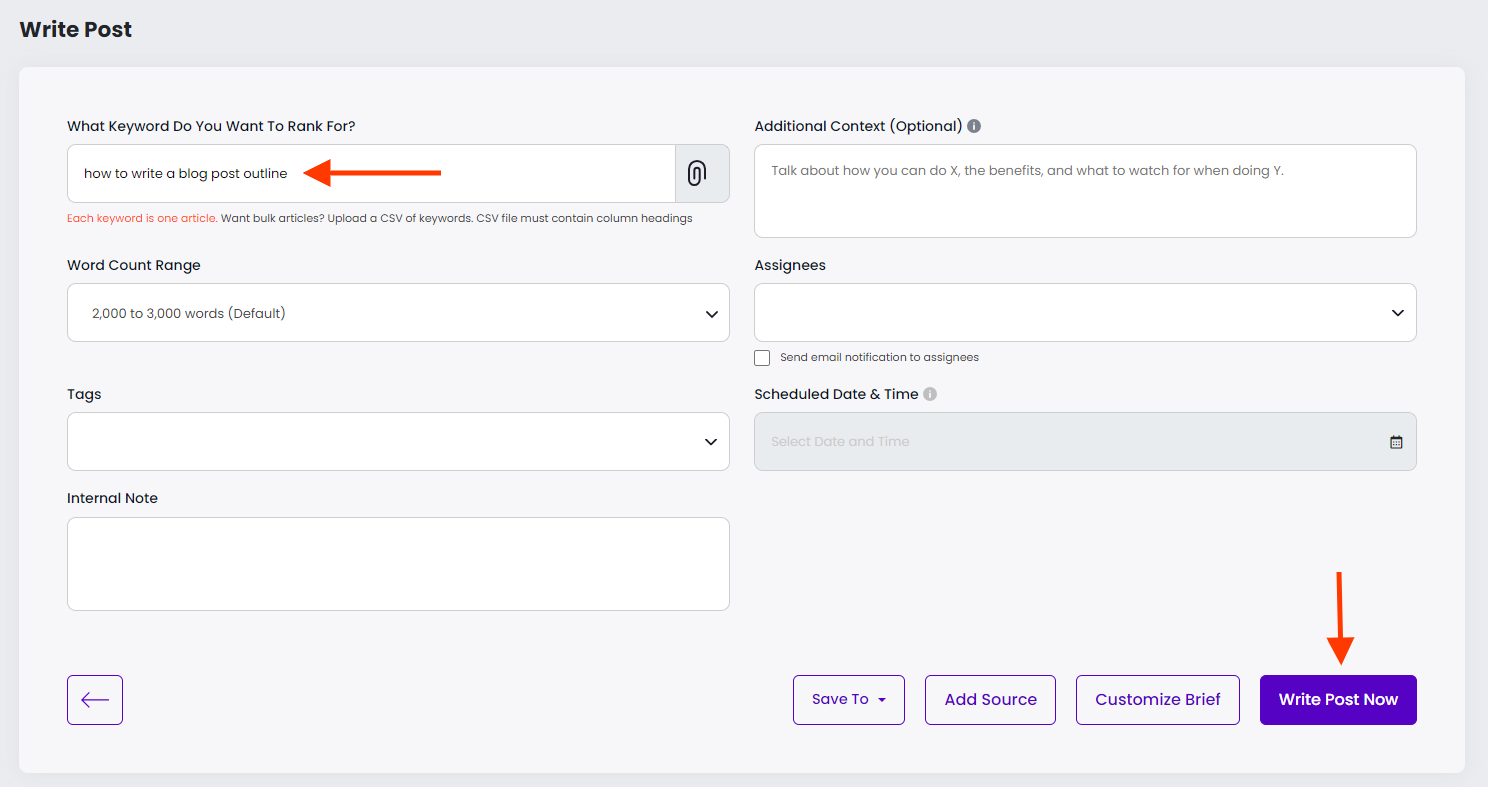
Now imagine if you could do this for a hundred keywords!
Watch how I published 10 blog posts in one day using BrandWell:
BrandWell also lets you choose a custom tone of voice so that every blog post the AI writes sounds like you. You can even add a custom CTA which will appear at the bottom of your articles.
The best thing about BrandWell is that it’s more than just a writing tool. It’s a complete tech stack for growing your brand, with a built-in keyword research tool, automatic link creation, website analysis, content audits, a plagiarism scanner, an AI detector, a WordPress plugin, and a full SEO suite that makes your blog look its best to both readers and search engines.
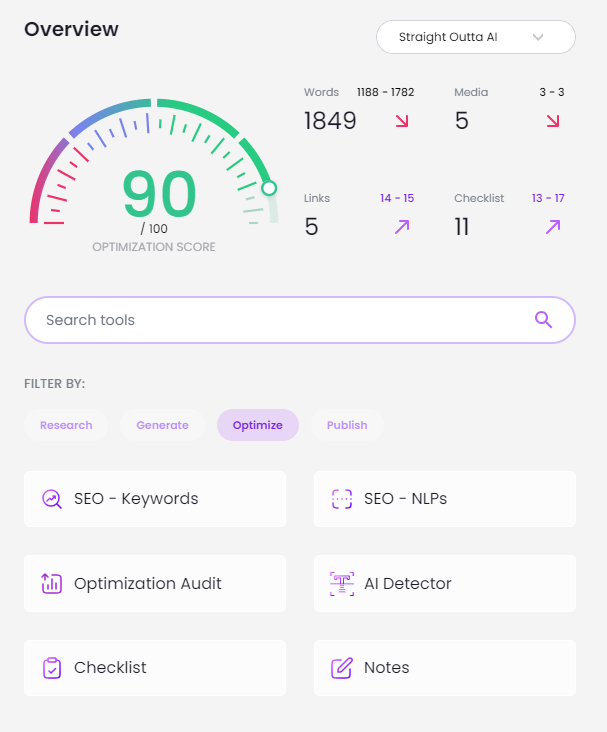
Artificial intelligence is not something that bloggers should fear. It’s a tool that can help you immensely especially if you plan to use blogging as a marketing tool.
FAQs – Blogging as a Marketing Tool
Is blogging an effective marketing tool?
Yes, blogging is an effective marketing tool. Blogging serves as a medium for companies to show their knowledge on matters connected to their field, and also promote the goods or services they offer. Additionally, blogs are often shared across social media channels which further increases brand awareness and reaches potential new audiences.
How is blogging used in marketing?
By crafting content that is engaging and helpful, businesses can draw in prospective customers who could be interested in their products or services. Blogging also allows companies to establish themselves as thought leaders by providing valuable information about topics related to their business. Furthermore, blogging helps boost SEO rankings by increasing website traffic through SEO techniques such as keyword research and link-building strategies.
Why is blogging important in digital marketing?
Blogging is an important part of digital marketing as it helps to create content that can be used for SEO purposes. Regularly creating and updating blog posts can be a great way for businesses to give their target audience beneficial information, while also improving the website’s SERP ranking.
Blogging allows businesses to establish a strong online presence, engage customers in meaningful conversations, increase brand visibility, generate leads, and boost sales. All these factors make blogging an integral part of any successful content marketing strategy.
Conclusion
Blogging as part of your content marketing strategy enables you to establish relationships with your target audience, generate leads and drive more sales for your business. However, blogging as a marketing tool doesn’t mean you’re going to simply push products. Blogging for pure advertising is a no-no!
If all you ever discuss is how great your company or product is, readers will quickly become disinterested. A better approach would be to include industry news stories and trends that are closely related to your product but not overly promotional. This way, readers will look forward to returning as there will always be something fresh for them when they come back!
Placing banner ads or promotional content on a blog post is one thing, but creating a totally fake blog is another. Readers can usually see through these blogs that were created solely to promote a product, so it’s best to steer clear of this tactic.
To make sure your message gets across, authenticity is key. Writing in an honest and genuine way helps build trust between you and your audience which will ultimately bring them back again and again. Furthermore, writing original pieces that offer real value rather than repeating other people’s ideas shows readers you are knowledgeable about your topic area – something they’ll truly appreciate.

